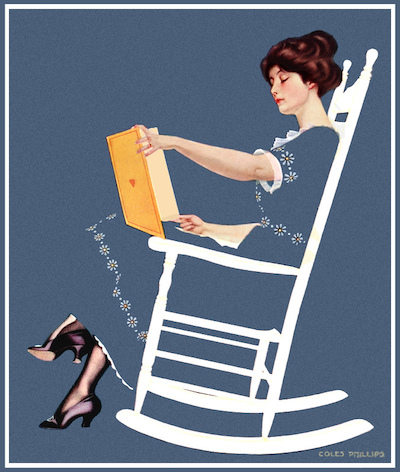No theme this week, just a selection of wonderful articles about sports that I flagged throughout the week. One of my favorite parts of writing Dear Sports Fan is reading other great writers cover sports in a way that’s accessible and compelling for the whole spectrum from super-fans to lay people. Here are selections from the best articles of the last week on the subject of attitude:
Wilt the Stilt Becomes Wilt the Stamp
by David Davis for the New York Times
I just love that these stamps are extra long. Fitting for a man who was 7’1″ and loved to (ahem) rack up statistics.
Chamberlain, the only man to score 100 points in an N.B.A. game, will become the first player from the league to be honored with a postage stamp in his image. And fittingly enough, the two versions being issued by the Postal Service are nearly two inches long, or about a third longer than the usual stamp.
That time an NFL team used truth serum on an injured player
by Andrew Heisel for Vice Sports
This article wins the award for craziest sports story of the week. And the craziest part of it is that the contract the Buccaneers were trying to get out of paying by proving that their employee was malingering was not even a big contract. If they went as far as injecting him with sodium pentothal, how far would they have gone to avoid paying a player with a bigger salary?
In a drug-soaked environment where the ends almost always justified the means, is it really shocking that an NFL team doctor would shoot a player full of a substance that was used by the CIA in the 1950s and 1960s as part of a top-secret mind control program? As McCall emphasized about Diaco, when a player enters a team’s training facility, he’s not dealing with his doctor but “their doctor.” There’s a difference.
When dyslexia blocked his path to college football, Maryland high school player took unusual route
by Dave Sheinin for the Washington Post
Wait, did I say the last story won the prize for craziest sports story? Hmm… let’s just say it’s a tie then. I’m actually surprised false identities don’t happen more often in order to get around the academic requirements to play top-level college football or basketball. I guess there are so many quasi sanctioned ways to cheat the system that going this far out of the box is rare.
He wasn’t a former power-lifter who turned one season of football at a prep school in Maine into a scholarship to Kansas State. He was actually a former all-state lineman from Maryland who, after failing to qualify academically for the NCAA, assumed the identity of his best friend — John Knott — and, using Knott’s transcripts and some forged documents, went off to chase his NFL dreams.
Yes, there was a real John Knott. But instead of the 6-foot-5, 280-pound black man who showed up in Manhattan, Kan., in January 1996 — touted by the National Recruiting Advisor as the “sleeper of the class,” because he was big and fast and nobody knew much about him — the real John Knott was actually a 5-9, 140-pound former high school teammate. And he’s white.
Thunder At Dawn, Or Prayer Of A Rugby Dad
by James Howdon for The Classical
Children often find ways to separate themselves from their parents’ avocations. For some children of sports fans, that means learning to play music or joining the debate club. For others, like the son whose father lovingly describes in this article, that means choosing a sport to play which his father knows nothing about.
There are outbursts of loudness, sudden messes, emotional extremity and inexplicable decision-making in our house, part of life with a bright and hasty teenaged boy. In rugby, it’s reversed: he’s the recipient, the object of constant chaos. Especially during the first few workouts, it must’ve felt like life in a tiny random universe: balls came his way without warning, bodies careened and bumped, and the flow of play suddenly reversed or stopped or accelerated in ways utterly surprising to him.
He is learning a sport about which his old man definitely doesn’t know better. He digs that part of the deal with a really big shovel, to be the one teaching.
Fantasy Football Isn’t Just a Man’s Game
by Courtney Rubin for the New York Times
As I wrote about earlier this week, the fantasy football playoffs start this weekend in most leagues. That means people all over the country, not just men, will be going crazy — screaming with joy, frustration, and staring fixedly at their phones, hoping for miracles!
Unflattering stereotypes abound about the female fantasy football player — does it only because of her boyfriend/husband, picks based on how cute the players are — but these days, young women are turning to fantasy football as a way to bond with friends, especially faraway ones with whom they communicate about their hobby on social media and GChat.
She [Adrienne Allen] is so competitive that she refuses to name her favorite research sources, lest she tip off the competition. But she will reveal that her diligence includes scanning the Internet for articles about players’ personal lives because drama can affect performance. “It’s a huge soap opera,” she said of the N.F.L.

